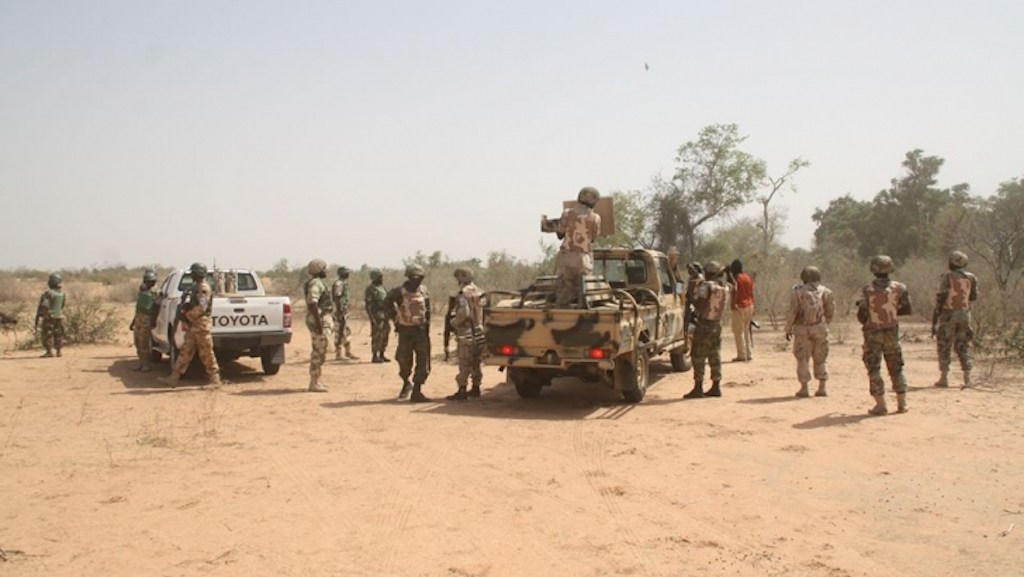
An alarm raised the other day by the Borno State Governor, Professor Babagana Zulum, over the lingering war with Boko Haram deserves special attention especially as the war is 10 years old and there seems to be no end in sight. The governor’s concern, invariably, captured the feelings of many people, especially, in the war-ravaged northeast zone of the country. As the chief security officer of the state, Zulum’s statement must be taken with seriousness as it may have been based on a credible assessment of the situation in the area.
The governor raised the alarm in Maiduguri while briefing the House of Representatives Speaker Femi Gbajabiamila and other members of the National Assembly (NAS) who were on security assessment mission in the state. According to him, “This Boko Haram war may not end soon because the terrorists now deploy drones in their operations.” This, to him, indicates that the terrorists seem to possess better technological weapons of warfare than the military.
He said, “Without adopting proper and up-to-date technological warfare edge over Boko Haram, this war will never end.”
In response, Gbajabiamila assured the governor that the House of Representatives would, among other things, consider increasing the numerical strength of security personnel in the North East.
Obviously, the speaker artfully evaded the central issue of concern raised by Governor Zulum, which is equipping the military with the right weaponry. It is ridiculous that Boko Haram is believed to have possessed superior technological power, including drones, than the Nigerian military, irrespective of the billions of dollars that have been budgeted for the war. Why should that be?
That calls for an in depth re-assessment of the entire war strategy under Operation Lafiya Dole, which is confronting the insurgents in the frontlines. The military should be equipped appropriately with the right hardware to be able to fight and win the war. The Nigerian military should have the upper hand. It should be parading drones, for instance, and not Boko Haram. But the signals have not been encouraging.
Clearly, right from the start, government underrated Boko Haram as we have repeatedly noted. By treating the insurgents with kid gloves, they had the leeway to transform from being a bunch of rag-tag rebels to a formidable and well-organised force.
That the war has lingered for10 years with no hope of ending soon shows that Boko Haram has been able to counter the military offensive, which is why the military should buckle up to confront the scoundrels more decisively. There have been dark hints that the war has been turned into a business venture and that is why the merchants in the region may do everything to sustain the warfare.
Incidentally, the frank governor’s recent alarm is not the first time that the authorities in Borno State have bemoaned the apparent superiority of Boko Haram in the ensuing battle.
In 2014, the immediate past governor of the state, Kashim Shettima, declared, unequivocally, that the terrorists were better armed than government forces fighting them. He was harshly rebuked from different quarters and even branded as sabotaging the war for saying so.
“Boko Haram are better armed and are better motivated than our own troops,” Kashim Shettima said after a meeting with then President Goodluck Jonathan. The then governor had noted then that given the state of affairs, it was “absolutely impossible for us to defeat Boko Haram.”
It must be noted that some billions of dollars have at different times been committed to the war on Boko Haram yet the troops have been complaining and lamenting over poor inadequate weapons. The National Assembly is in a position to pass appropriate legislations to give the military what it needs to prosecute the war. When will Speaker Gbajabiamila and his colleagues address that as representatives of the people?
Meanwhile, many of the Chibok school girls abducted since 2014 are still unaccounted for and the same with Leah Sharibu, the lone Dapchi school girl held by the insurgents after her mates were released. Over two million people comprising mostly women, children and the elderly, have been rendered homeless and are now squatting in Internally Displaced Persons (IDP) camps across the states.
In the main, we call on the government to do more to secure the release of the abducted schoolgirls, as well as see to the end of the war. Government should use whatever possible means within its power to end the crisis as it has given the country a bad name. It is trite to say that wars hardly end in the battlefield but on the negotiating table. Government should continue to seek dialogue to engage the insurgents.
Finally, we encourage the military authorities and indeed the security agencies not to relent but to continue to show commitment they have always displayed in dealing with the insurgents since 2009.
END

Be the first to comment